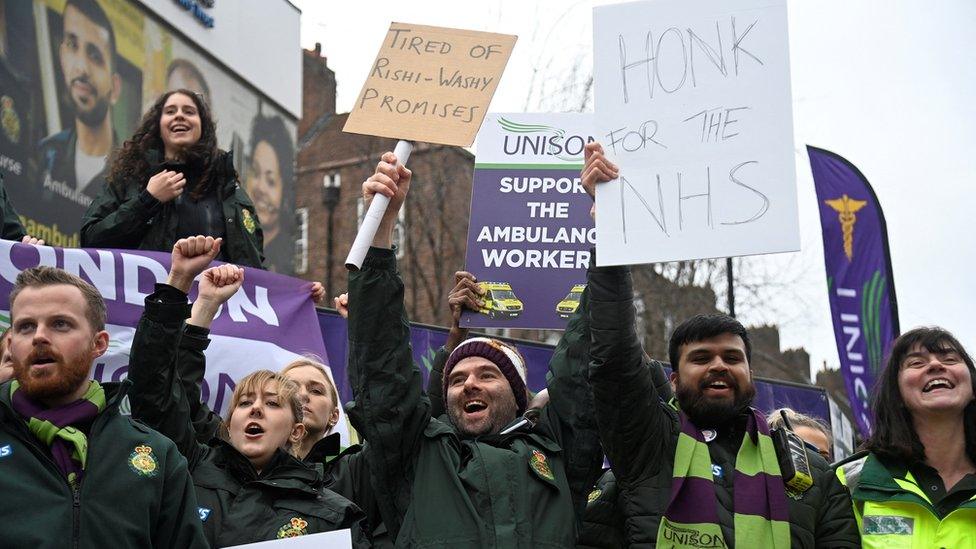Using agency staff to cover strikes ruled unlawful
- Published

The change to the regulations was brought in by then-Business Secretary Kwasi Kwarteng
Employers can no longer use agency staff to cover striking workers during walkouts, the High Court has ruled.
The judgement, which follows a judicial review brought by 13 unions, overturns controversial government legislation introduced last year.
The TUC, which co-ordinated the action, called the ruling a "major blow" to "ministers' attempts to undermine the right to strike".
The government said it was disappointed and considering its next steps.
"The ability to strike is important, but we maintain there needs to be a reasonable balance between this and the rights of businesses and the public," a spokesperson for the Department for Business and Trade said.
The change to regulations, which became law in January, was a response to the wave of strikes over pay and conditions that hit the UK last year.
It was brought in by then-Business Secretary Kwasi Kwarteng, who at the time said he wanted to remove "burdensome, 1970s-style restrictions" which made the use of temporary workers during strikes a criminal offence.
But the unions, which represent around three million workers, argued that the government had breached their rights by failing to consult them on the changes.
On Thursday, Judge Thomas Linden upheld their challenge in a written ruling, quashing the regulations.
'Irrational'
He said Mr Kwarteng had made his decision to change the rules based on "precious little information", relying instead on a 2015 consultation which predated Covid and the cost-of-living crisis.
This, he said, was "so unfair as to be unlawful and, indeed, irrational".
TUC general secretary Paul Nowak said the ruling was "a badge of shame for the Conservatives, who have been found guilty of breaching the law".
"Bringing in less-qualified agency staff to deliver important services risks endangering public safety, worsening disputes and poisoning industrial relations.
"The government railroaded through this law change despite widespread opposition from agency employers and unions."
Richard Arthur, head of trade union law at Thompsons solicitors, which represented the unions, called the ruling "a significant victory" for the trade union movement.
He added it would preserve "a vital safeguard in ensuring the right to participate in industrial action is effective".
His colleague Rachel Halliday said the regulations would be quashed from 10 August.
The government has the right to ask whether it can appeal against the decision, and it could also carry out a fresh consultation exercise.
However, it would have to take into account the responses, and in his ruling Judge Linden said Mr Kwarteng "did not even consider the information available as to the responses to the 2015 consultation".
The Department for Business and Trade said it had believed the decision to repeal the ban on agency workers covering strikes "complied with our legal obligations".
"We will consider the judgement and next steps carefully," the spokesperson said.
- Published31 January 2023

- Published18 January 2023
